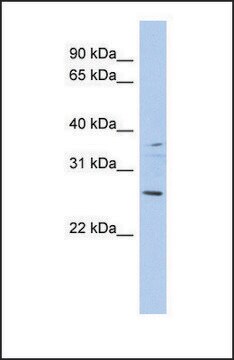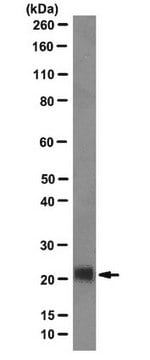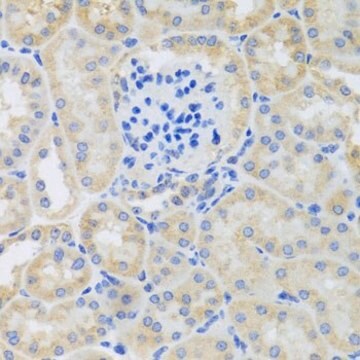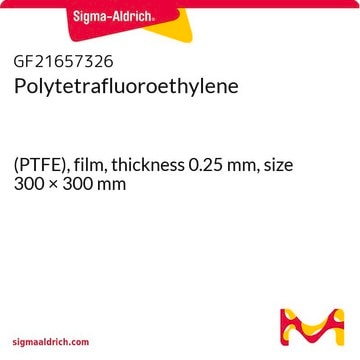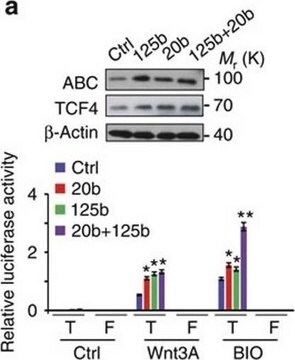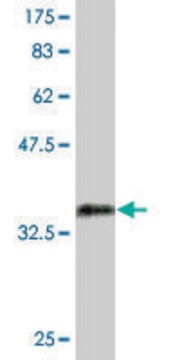MAB4418
Anti-Achaete Scute homolog 2 Antibody, clone 7E2
clone 7E2, from mouse
Sinónimos:
achaete-scute complex (Drosophila) homolog-like 2, achaete-scute complex homolog 2 (Drosophila), achaete-scute complex homolog-like 2, achaete-scute complex-like 2, achaete-scute complex-like 2 (Drosophila), mammalian achaete/scute homologue 2
About This Item
Productos recomendados
origen biológico
mouse
Nivel de calidad
forma del anticuerpo
purified immunoglobulin
tipo de anticuerpo
primary antibodies
clon
7E2, monoclonal
reactividad de especies
human
técnicas
ChIP: suitable
immunocytochemistry: suitable
western blot: suitable
isotipo
IgG2bκ
Nº de acceso NCBI
Nº de acceso UniProt
Condiciones de envío
wet ice
modificación del objetivo postraduccional
unmodified
Información sobre el gen
human ... ASCL2(430)
Descripción general
Especificidad
Inmunógeno
Aplicación
Chromatin Immunoprecipitation Analysis: A previous lot was used by an independent laboratory in ChIP (Hatzis, P., et al., 2008).
Calidad
Western Blot Analysis: 1 µg/mL of this antibody detected Achaete Scute homolog 2 in 10 µg of human placenta tissue lysate.
Descripción de destino
Forma física
Otras notas
Not finding the right product?
Try our Herramienta de selección de productos.
Código de clase de almacenamiento
12 - Non Combustible Liquids
Clase de riesgo para el agua (WGK)
WGK 1
Punto de inflamabilidad (°F)
Not applicable
Punto de inflamabilidad (°C)
Not applicable
Certificados de análisis (COA)
Busque Certificados de análisis (COA) introduciendo el número de lote del producto. Los números de lote se encuentran en la etiqueta del producto después de las palabras «Lot» o «Batch»
¿Ya tiene este producto?
Encuentre la documentación para los productos que ha comprado recientemente en la Biblioteca de documentos.
Nuestro equipo de científicos tiene experiencia en todas las áreas de investigación: Ciencias de la vida, Ciencia de los materiales, Síntesis química, Cromatografía, Analítica y muchas otras.
Póngase en contacto con el Servicio técnico